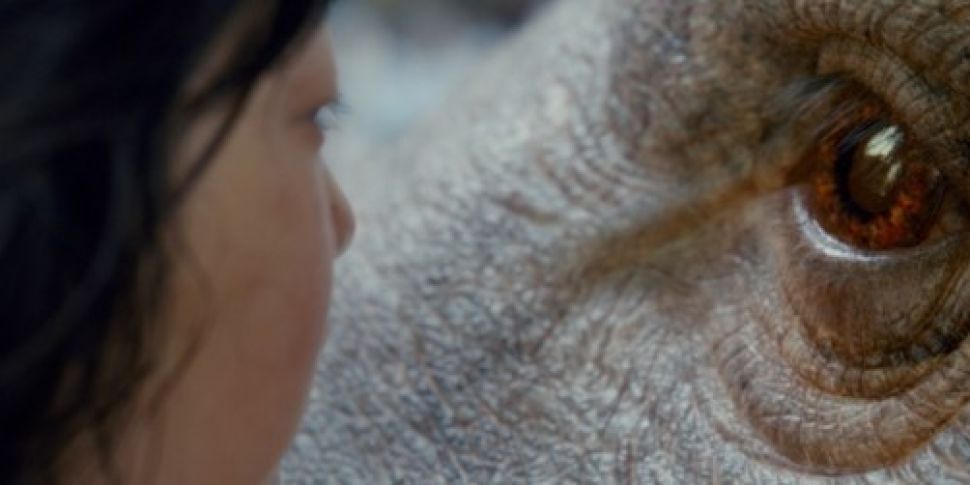Netflix’s big Cannes Film Festival debut was not quite a rousing success for the streaming giant.
On one hand, its two upcoming film releases - Okja and The Meyerowitz Stories - have received generally positive buzz after their respective premieres. Unfortunately, the films also played to the infamously hostile Cannes crowd - and it was the booing of Netflix logos that made more headlines than the films themselves.
Not only that, but the furore over streaming-only films’ inclusion in the world’s most prestigious film festival also led to Cannes organisers restricting films that don’t receive a full French theatrical release from future festivals.
The whole affair has highlighted a few of the different cultural and business conflicts out there: traditional cinemas vs online streaming; critics vs audiences; directors who stick to the big screen vs the filmmakers happy to embrace the small one. It’s a complex debate, with valid points on all sides. But perhaps above all it has illustrated Netflix’s struggles to make an impact in the film world.
It’s somewhat incredible to think that House of Cards - Netflix’s big original programming gamble - only premiered four years ago. It’s a short amount of time, but it’s little exaggeration to say they’ve helped change the way people watch TV. Taking ‘binge watch’ DVD boxset culture to its logical next level, online streaming has now become the dominant method of consuming television for many viewers. The quality of the shows themselves has fluctuated - for every Orange is the New Black there’s a Hemlock Grove - but the cultural and commercial impact of the various ‘Netflix originals’ is near impossible to dispute.
With film, however - and I’m talking Netflix ‘original’ films here, as opposed to its back catalogue content (which has gotten skimpier) - the streaming giant has seriously struggled to make its mark. Which is somewhat surprising, given that its wide selection of DVD and - only later - streamable films was what made the company’s name in the first place.

I Don't Feel at Home in This World Anymore. Image: Netflix
A mixed bag
Netflix played its first filmic hand with 2015’s Beasts of No Nation, and since then have released several dozen original films. Most of those they’ve simply bought for distribution as opposed to funding themselves, but increasingly they’re getting involved from the off.
Sadly, the quality of the films has been a tad all over the shop. There’s been several middling indies (Tramps, The Discovery). There’s been a reviled sequel to Crouching Tiger, Hidden Dragon. They’ve funded several awful Adam Sandler comedies. Last week they released the exceedingly weak anime adaptation Blame! (a completely misguided effort to adapt a classic comic series), and this week’s War Machine - their most expensive, high-profile production yet - arrives to a critical consensus best described as a ‘shrug of the shoulders’. You’d be forgiven for not having heard of most Netflix original films at all.
There’s been a few solid efforts - such as the dark comedy I Don’t Want to Live at Home in This World Anymore - but little to really compete with what’s playing in cinemas across the country. They’ve done extremely well with feature documentaries, which are more naturally suited to small-screen presentation. And the imminent Okja and The Meyerowitz Stories have been warmly received by those who’ve seen them so far (to say nothing of the planned Netflix release of Martin Scorsese’s The Irishman).
Still, even with some modest successes, it’s hard to argue Netflix’s cinematic output has been particularly inspiring. This is particularly true when you compare their approach to rival Amazon. A surprising amount of recent critical favourites have borne the ‘Amazon Studios’ logo - Manchester by the Sea, The Lost City of Z, Paterson, The Handmaiden and The Salesman are just a few of the excellent films they’ve supported at some capacity in the last year or so. Such films are in a completely different league to Netflix’s fare so far.
Another important difference between the two companies has been their attitudes towards cinema releases. Amazon are much more traditional, giving their films (in the US at least - most of their films have different distributors here in Ireland) a full theatrical release before making them available online a few months later. Netflix, in contrast, have actively resisted cinema releases - hence those Cannes boos.

The Do-Over. Image: Netflix
Way of the future?
Here’s where the disagreements arise over Netflix’s attitude. Many have dismissed the ‘boos’ as the actions of out-of-touch critics futilely resisting the forward march of progress. Yes, streaming is the future, or at least a very significant part of it. That, in some ways, is a good thing.
There’s always been a schism when it comes to cinema releases - those lucky enough to be able to travel the world’s biggest festivals often get to see films months, if not years, before the rest of us. Multiplexes have become way too dominated by superhero films and low-quality blockbusters - in that sense, the existing system is in good need of a rattling.
Streaming releases can drastically speed up releases, and ensure they’re more universally available. It’s undoubtedly a positive development that we’ll all get to see Okja only a month after its Cannes premiere (doubly so since director Bong Joon-ho’s previous film Snowpiercer was never properly released here). With some of the other Cannes favourites, we might not get to see some of them until early 2018 - and that’s only if you’re lucky enough to live near an arthouse or independent cinema.
Plus, streaming is just cheaper - for many families in particular, a trip to the cinema can be a pricey affair.
At the same time, this writer can’t help but sympathise with some of the unease about Netflix’s increasing cinematic, shall we say, aggression. The cinema remains something of a sacred space - even with all the advances in home viewing, there’s nothing quite like the big screen. The sheer prospect of not being able to see a new Scorsese film on a big screen is a disheartening one.
There's another thing: Netflix cannot possibly hope to match the sheer variety of films being released in cinemas on a weekly basis, even if unfortunately a lot of those films don’t make it into the multiplexes. Film is expensive, and even Netflix’s deep pockets only go so far. To be honest, it's not even clear that Netflix really want to pump the same resources into film that they've put into TV - TV just seems to be their bread and butter, and most viewers surely agree.

War Machine. Image: Netflix
Netflix vs the cinema
In the worst case scenario, Netflix’s poaching of films like The Irishman could genuinely put many smaller cinemas at risk. Often the success of these sort of high-profile films helps independent cinemas survive, while supporting some of the less commercial fare playing alongside them.
Such variety is something that has not been echoed in Netflix’s line-up so far - it’s hard to imagine Netflix buying up the sort of challenging, out-there films you get in the IFI or the various film festivals around the country. While the likes of Mubi offer a niche but limited selection for cinephiles, streaming culture has yet to mature to the point where it can offer a real, lasting alternative to the existing cinema scene (which is supplemented quite nicely by Blu-Ray releases). If more people choose to stay at home, the wider cultural ramifications could be significant.
Ironically, despite Netflix films being universally available to all subscribers, there's also a real danger of them getting lost in the crowd. A cinema release guarantees widespread critical and marketing attention, and of course the possibility of awards glory. After release, Netflix films are sometimes destined to just disappear into the the service's labyrinthine interface, unless an algorithm decides to flag it somewhere along the line.
More than anything, though, Netflix will need to dial up their quality control significantly if they really want to make a positive impact. At worst, the company can come across as favouring ‘content’ above all else, quality be damned - that's true for TV as well.
Its small Cannes line-up, despite the boos, is an encouraging step - hard to begrudge them for supporting the latest films of two established and talented directors. But given the scattershot quality of their output to date, much more consistency and imagination will be required to keep such momentum going.
Netflix has changed the way we watch television. Cinema, though, is a trickier medium to crack - and, despite some progress, the world’s most successful streaming company has a whole lot of work to do before their name becomes synonymous with high-quality original cinema. An open question remains about whether or not that should even be allowed happen - and only time will tell how aggressive and effective Netflix's film investments will be.









